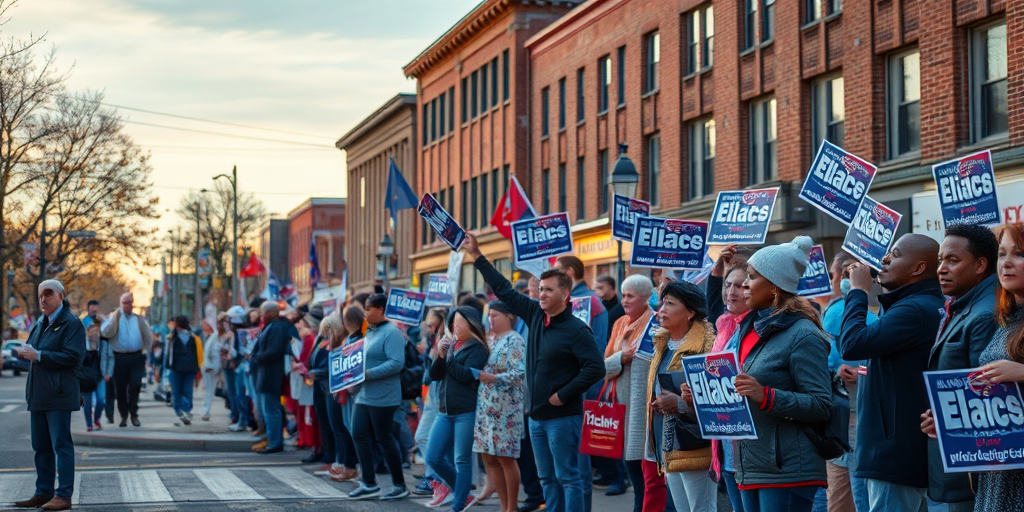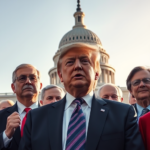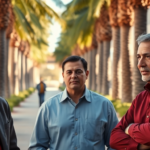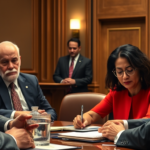**Springfield’s Political Landscape Transforms with Historic Diversity Wins**
Springfield, Massachusetts, is witnessing a transformative moment in its political landscape, marked by historic victories in the recent local elections. This change signifies a broader shift towards more inclusive representation in government, reflecting the diverse community it serves. The elections saw Ayanna Crawford and Justin Hurst elected to significant positions, while Trayce Whitfield achieved a groundbreaking first as the city’s newest leaders take the helm.
Historic Wins and New Beginnings
The Springfield elections have made headlines with diversity milestones. Ayanna Crawford captured a seat on the Springfield School Committee, and Justin Hurst triumphed in the City Council race. Trayce Whitfield’s election as the first woman of color and President of the Springfield City Council underscores this changing tide.
These victories are more than symbolic; they are a testament to the growing inclusivity and representation that citizens have tirelessly advocated for. Following her victory, Crawford emphasized the importance of robust support systems in schools, stating, “We plan to enhance mental, social, and emotional health resources to support our youth’s development.”
For Hurst, returning to the City Council signifies a renewed commitment to addressing the issues facing Springfield. Fresh from his victory, he remarked, “Our goal was to engage deeply with the community and ensure their voices echo within our policy-making processes.”
Implications for Springfield’s Communities
The shift in Springfield’s political scene offers hope and a promise to its residents. The School Committee’s composition now entirely reflects people of color, an accomplishment that aligns with Springfield’s multicultural demographics. This transformation could lead to policies and practices that more accurately reflect the needs and experiences of the city’s diverse population.
Dr. Emily Rodriguez, a political science expert at the University of Massachusetts, noted the potential impacts of this election on the policy landscape. “Diverse representation can lead to enriched decision-making processes, innovative problem-solving, and policies that cater to a broader spectrum of the community.”
The new faces in Springfield’s leadership could also bring about changes to local education systems, enhance community-police relations, and approach economic development from a more inclusive standpoint. Such transformations are crucial given recent community concerns surrounding crime and economic disparities.
Community Reactions and Expectations
Springfield residents have expressed excitement and optimism about the new political direction. Longtime resident, Marisol Hernandez, believes this change is necessary for progress. “Seeing leaders who look like us and understand our struggles is inspiring. We are eager to see their plans turn into action,” she stated enthusiastically.
However, the road ahead requires navigating various challenges. Springfield’s past, marked by socioeconomic divides, lingers as a reminder of the hurdles these leaders must overcome to succeed. Nonetheless, there is a palpable anticipation for policies that tackle food insecurity, improve safety, and foster an inclusive community environment.
Looking Back and Moving Forward
Springfield’s shift in governance connects to broader regional efforts to address public safety, highlighted by a recent significant cocaine trafficking bust orchestrated by local police. The operation, which led to 13 arrests, underscores ongoing crime challenges that the new city council, led by Whitfield, aims to address more effectively.
Further reinforcing community solidarity is the annual “Sack Hunger” campaign by Big Y, supported locally by organizations like the O’Dell Women’s Center, which donated $100,000 to food banks. These efforts, aligned with the new leaders’ community-focused agendas, show that Springfield’s change is part of a greater tapestry of local initiatives aimed at social betterment.
The Path Ahead: Community Participation and Involvement
With new officials on board, Springfield’s residents recognize the power of sustained civic engagement. Continuous dialogue between officials and citizens is vital for successful governance. Public forums, community meetings, and digital platforms through media outlets like WWLP are essential tools for maintaining this relationship.
For residents and interested parties, the Springfield local government plans to update its schedules for public meetings and sessions to discuss ongoing community projects, making these interactions more accessible. Active participation ensures diverse voices contribute to Springfield’s growth narrative.
Conclusion: A New Era for Springfield
As Springfield’s newly elected officials prepare to assume their roles, the community stands at the brink of a new era defined by inclusivity and representation. These historic election outcomes mark not just a victory for the candidates but for the broader movement towards diversity in governance. Residents, armed with hope and high expectations, eagerly anticipate the positive changes these leaders will bring to the city.
Supported by local resources and community initiatives, Springfield’s future seems promising. These changes signify the strength of local impact and commitment to ensuring that every resident, regardless of race or background, finds their voice heard and represented.







